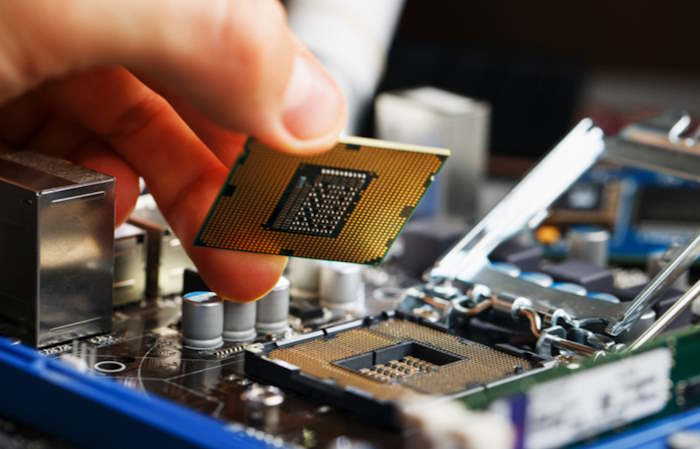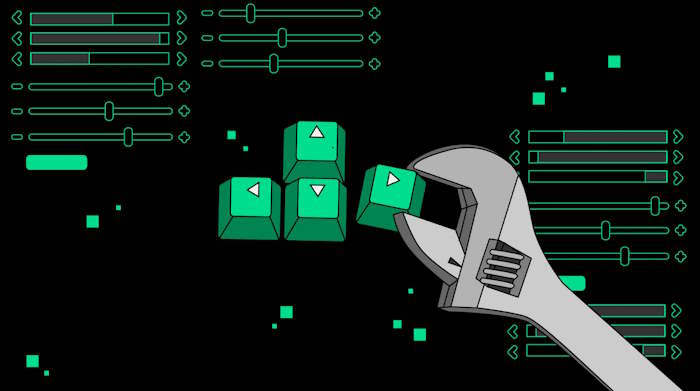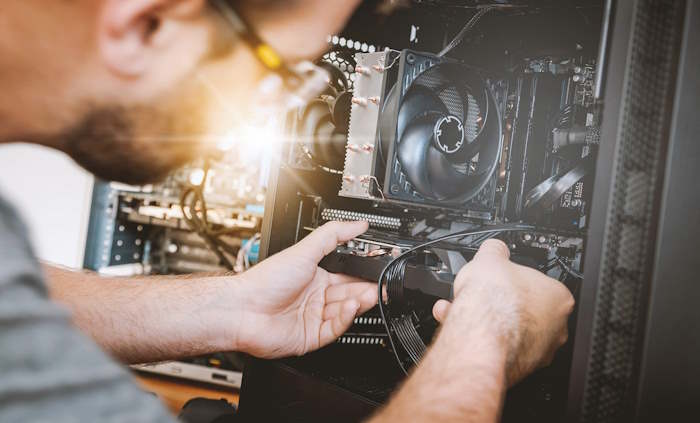4 Methods to Make Games Run Faster on Computer
Immersing in computer gaming demands one thing above all: seamless performance. The rush of digital adventure can quickly turn sour with sluggish responses and choppy graphics. But fear not! This article is your steadfast companion, illuminating the dark corridors of game optimization. We delve into various methods, each aimed at driving your gaming speed to new limits.
Upgrading Hardware Components
Breathing fresh life with hardware upgrades is a practical solution that, while potentially costly, can dramatically improve your gaming performance. Below are key components to consider upgrading:
- Central Processing Unit (CPU). Your computer’s brain, the CPU, plays a crucial role in gaming performance. A faster CPU can process game mechanics more smoothly, reducing lag and stutters. From a blackjack calculator strategy to a detailed open-world game, a powerful CPU will ensure optimal performance.
- Graphics Card (GPU). At the heart of your gaming experience is the GPU, your machine’s graphical prowess. Upgrading to a higher-tier graphics card can drastically enhance in-game visuals and speed. In the world of GPUs, names like Nvidia and AMD reign supreme, offering a spectrum of options to fit various budgets and needs.
- Random Access Memory (RAM). More RAM equals more room for your games to ‘breathe.” If your gaming rig is gasping for air with only 4 or 8GB of RAM, doubling that can result in noticeable improvements in game speed and multitasking ability.
- Solid State Drive (SSD). Compared to traditional Hard Disk Drives, SSDs offer much faster read/write speeds. This translates to quicker game load times and a smoother gaming experience overall.
- Power Supply Unit (PSU). A robust PSU becomes essential to ensure stable power delivery to these hungry components if you opt for higher-end GPUs or CPUs.
- Cooling Solutions. Games push your hardware to its limits, generating heat. Quality cooling solutions can prevent overheating, thus maintaining optimal performance.

Upgrading hardware is an investment, but it’s a worthwhile one for avid gamers. Remember to ensure component compatibility and consider professional help for installation if you’re uncertain. Don’t let the technological complexity deter you – the rewards are game-changing.
Adjusting In-game Settings
Many gamers’ woes can be resolved by simply tweaking the game settings. Adjusting the resolution is often a good starting point. Lowering it can significantly enhance game performance, but this comes with a slight trade-off in visual quality. However, smooth gameplay at a lower resolution is generally preferable over choppy gameplay at a high resolution.

Another factor to consider is the game’s graphical settings. Most games come with preset levels such as ‘Low,’ ‘Medium,’ ‘High,’ and ‘Ultra.’ If your game is stuttering, consider stepping down to a lower preset. Fine-tuning individual settings like shadows, textures, and anti-aliasing can bring surprising performance improvements.
The frame rate cap is another setting that warrants attention. If the frame rate exceeds your monitor’s refresh rate, it can unnecessarily load your GPU. By setting a frame rate cap, you can alleviate this burden.
Optimizing Your Operating System
Enhancing your gaming experience is not just about optimizing the game; your computer’s operating system (OS) can also play a significant role. First, ensure your OS and drivers are up-to-date. Regular updates keep your system secure and often include performance improvements and bug fixes that can help games run smoother.

Power settings can also impact gaming performance. Adjust your computer’s power plan to ‘High Performance.’ This enables your system to utilize its full processing power, resulting in better gaming performance.
Another step towards OS optimization involves closing unnecessary background processes. These processes can consume precious CPU and memory resources that your games could better use.
Furthermore, if you’re using Windows, consider disabling unnecessary visual effects via the Performance Options menu. While these effects make the OS look visually appealing, they can drain resources.
Regular PC Maintenance
The road to superior gaming performance doesn’t end at hardware upgrades or settings adjustments. The importance of regular PC maintenance in ensuring an optimized gaming experience is often underestimated.
- Cleanliness is paramount. Dust accumulation can lead to heat build-up, impeding component efficiency, so regular cleaning of your PC’s interior is essential. Compressed air is an excellent tool for this task.
- Software maintenance matters too. Regularly updating your games and the software they rely on, like DirectX or graphics drivers, ensures they benefit from the latest optimizations and bug fixes.
- Disk defragmentation is another crucial aspect, especially for those using traditional hard disk drives. This process arranges files for quicker access, reducing load times. For SSDs, a trim command is more appropriate to maintain performance.
- Remember to check for malware regularly. Viruses and other malicious software can hog system resources, reducing gaming performance. A trustworthy antivirus program is a necessary safeguard.

Routine PC maintenance is a simple yet effective method to extract optimal performance from your gaming rig consistently.
Conclusion
You can ensure your games run at peak performance by upgrading hardware components, tweaking in-game and OS settings, and regularly maintaining your PC. Remember, each computer has unique capabilities and limitations, so the effectiveness of these methods may vary. It’s an adventurous exploration that’s truly rewarding for every gaming enthusiast.








